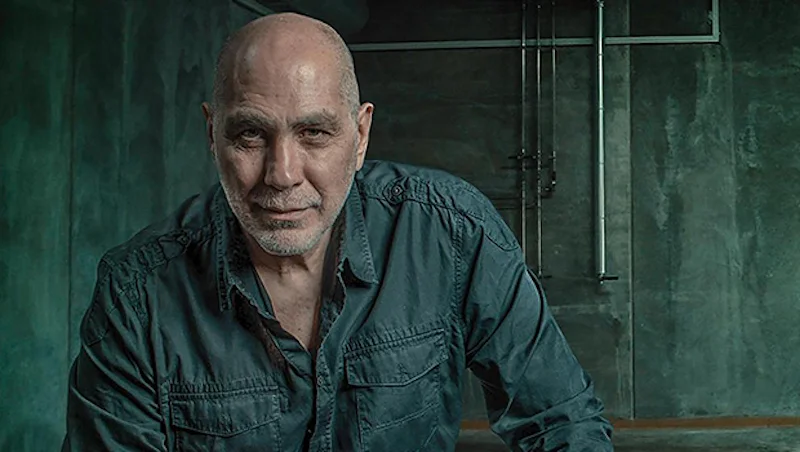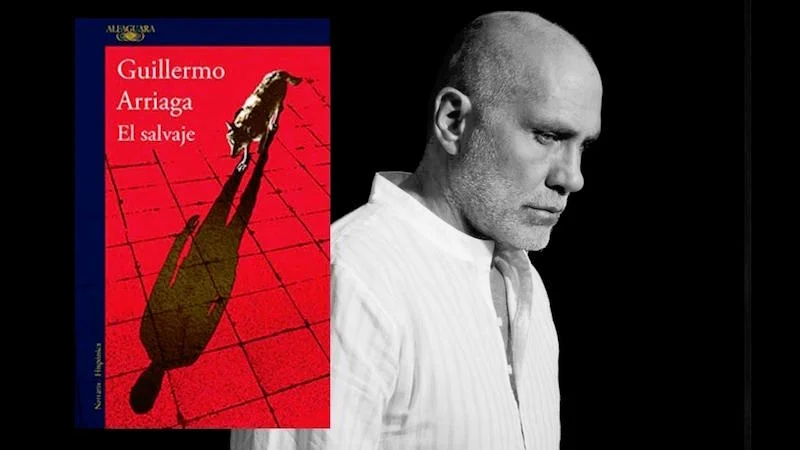Four years ago, I sat down with Guillermo Arriaga to speak with the writer, producer and director about his latest collaboration, ‘Words with God’. An omnibus film about spirituality and the individualism of religion, a collaboration between filmmakers from around the world, to bring us into their own discourse with their personal gods.
That meeting with Arriaga proved magical. Arriaga, to those who don’t already know and adore his work, has written stories and screenplays for films such as ‘21 Grams’, ‘Amores Perros’ and ‘Babel’, penned novels like ‘The Night Buffalo’, his latest yet untranslated into English ‘El Salvaje’ (The Savage) and directed a number of films — including a personal favorite, ‘The Burning Plain’ starring Charlize Theron and Kim Basinger. During that interview in Venice, he quickly became one of the first artists who truly spoke with me, not at me. And who created a dialogue that I still think about today.
Arriaga is currently on a book tour promoting ‘El Salvaje’ and follows the route of his work’s latest translations, which, among other locations, so far have taken him to my native Florence and will take him to Holland at the start of 2019. In fact, while in the Netherlands, he’ll participate in what promises to be an engrossing conversation during the International Film Festival Rotterdam, part of their #FeelIFFR series of events.
If we’ve been taught anything this year, as film lovers, is that Mexican cinema feels the most honest. It holds a spellbinding quality that managed to unite Americans in NYC, film critics in Venice and audiences around the world, while watching Alfonso Cuarón’s ‘Roma’. We felt like that was our childhood, our home, our land. And to take that further, I dare declare that Arriaga is the original modern Mexican filmmaker, the man who paved the way for the Del Toros and Iñárritus to come.
Here is our chat from 2014, almost unedited. And don’t forget to check out the website for IFFR for the exact date and place of the engrossing “In Conversation with Guillermo Arriaga”.
Do you think the problem with the world today is that none of us have a clear cultural identity anymore, so we try to find it in religion?
Guillermo Arriaga: I think identity comes from two places, race and class. When you are unsure of yourself it comes from race class religion and you have a protection, a “corazza,” in Italian — a shell, an armor. You armor yourself. That's what happens with fundamentalism, when I feel I'm threatened I create a shield and religion is the perfect shield. And the idea of this film is to open the dialogue about that shield, to make people feel that we have to know each other, because if you know the other people, you will not be threatened.
To me, ‘Words with Gods’ is a film not so much about religion but about being spiritual and having words with gods, because we all can turn to the sky and speak with our individual god, whoever we want him/her to be.
Arriaga: That's the idea, it's not a film about the structure of religion. Religion comes from "Religei" in Latin, how can I relate to him. That's where it comes from. Institutions have put so many rules on how you have to relate to God, so we wanted instead what is the human experience of your relation with God? Through the concept, the rules of the institutions. How do you relate to your own God? I think it's very interesting because every one of them have an approach that is also very contradictory. The contradiction that Alex de la Iglesia presented, two non-believers who are believing. And one suits the other, and the Atheist is the one who says go in peace. He's got this kind of God face.
And your short film, where humans are affected by God but then continue to do what they were doing before. Destroying, upheaving, taking advantage of the world. God showed you blood, but you continue to go about trampling His world.
Arriaga: You got the message, which is very Atheist, I’m Atheist.
But you're spiritual?
Arriaga: No.
(At this point, Arriaga’s producer on the film, Alex Garcia jumps in)
Alex Garcia: He's very spiritual even though he says no.
You seem spiritual to me!
‘El Salvaje’ is Guillermo Arriaga’s latest book project
Arriaga: I consider myself, and I consider him [Garcia] — we are humanists.
What is the definition of that?
Arriaga: A spiritual is looking for a spirit outside of you, a humanist is looking at the eyes. We don't call it God. I proudly belong to the human species, I'm proud to be a human.
Even today??
Arriaga: I know, people are saying humans are horrible. I like what we've created. We've created that [points to Venice in the distance, seen from the patio where we are conducting the interview] how can I be ashamed of being a human?
I love humanity. When I'm directing I'm much more obsessed with the actors, they are the core of my work. I love faces, and their silences.

